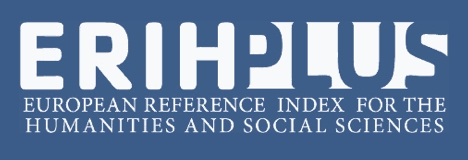The city is the classroom: teaching/learning geography from the place
Abstract
The theoric renewal movement of Geography throughout the 20th century and beginning of the 21st century resulted in criticisms of traditional perspectives of teaching and introduction of new methodological guidelines. Faced with these challenges, the Geography basic education teachers have made efforts to tailor the teaching content to meet the space field experienced by the learner. The present paper aims at contributing to pedagogic practices that could provide the educational use of urban areas in Fortaleza based on Merleau-Ponty’s postulates on perception and corporeity, where the existential context of the learner is the starting point to the understanding of the geographical space. Bearing this principle in mind, we have developed a set of activities at General Murilo Borges Moreira State School. We have contextualized the teaching content to meet the learner’s reality and as a result there was a significant retention of new content.
References
BRASIL. Lei nº 11738, de 16 de julho de 2008. Regulamenta a alínea “e” do inciso III do caput do art. 60 do Ato das Disposições Constitucionais Transitórias, para instituir o piso salarial profissional nacional para os profissionais do magistério público da educação básica. Disponível em:
CAMARGO, J. C. G.; ELESBÃO, I. O problema do método nas ciências humanas: o caso da Geografia. Mercator, Fortaleza, ano 3, n. 6, ago./dez. 2004. p. 7-18
CARBONELL-CARRERA, C.; JAEGER, A. J.; SHIPLEY, T. F. 2D Cartography Training: Has the Time Come for a Paradigm Shift? ISPRS International Journal of Geo-Information, [s.l.], v. 7, n. 5, p.1-13, may 2018. MDPI AG. http://dx.doi.org/10.3390/ijgi7050197.
CARLOS, A. F. A. Apresentação. In: ______ (Org.). Novos caminhos da Geografia. 5. ed. São Paulo: Contexto, 2007. p. 7-8.
DANTAS, E. W. C. Maritimidade nos trópicos: por uma Geografia do Litoral. Fortaleza: Edições UFC, 2009.
______. Litoralização do Ceará: Fortaleza, da “Capital do Sertão” à “Cidade do Sol”. In: SILVA, J. B. et. al. (Orgs.). Litoral e Sertão: natureza e sociedade no nordeste brasileiro. 1. ed. Fortaleza: Expressão Gráfica, 2006. p. 269-277.
DELORS, J. (Coord.). Educação: um tesouro a descobrir. São Paulo: Cortez editora, 1998.
FOUCAULT, M. Microfísica do poder. Rio de Janeiro: Graal, 1992.
FREIRE, P. Pedagogia da autonomia: saberes necessários à prática educativa. 34. ed. São Paulo: Paz e Terra, 2006.
GELPI, A.; SCHÄFFER, N. O. Guia de percurso urbano. In: CASTROGIOVANNI, A. C. et. al. (Orgs.). Geografia em sala de aula: práticas e reflexões. 1. ed. Porto Alegre: AGB – Seção Porto Alegre, 1998. p. 113-124.
HOLZER, W.; HOLZER, S. Cartografia para crianças: qual é o seu lugar? In: SEEMAN, J. A aventura cartográfica: perspectivas, pesquisas e reflexões sobre a Cartografia Humana. Fortaleza: Expressão Gráfica e Editora, 2005. p. 201-217.
LACOSTE, Y. A Geografia – isso serve, em primeiro lugar, para fazer a guerra. Tradução de Maria Cecília França. Campinas: Papirus, 1988.
MERLEAU-PONTY, M. Fenomenologia da percepção. 2. ed. São Paulo: Martins Fontes, 1999.
MONBEIG, P. Novos estudos de Geografia humana brasileira. São Paulo: Difel, 1957.
NOBRE, L. Estoril – Vila Morena. 2010. Disponível em: < http://www.fortalezanobre.com.br/2010/04/estoril-vila-morena.html>. Acesso em: 15 jun. 2017.
OLIVEIRA, C. D. M. Do Estudo do Meio ao turismo geoeducativo: renovando as práticas pedagógicas em Geografia. Boletim goiano de Geografia, Goiânia, v. 26, n. 1, jan./jun. 2006.
______. Sentidos da Geografia Escolar. Fortaleza: Edições UFC, 2009.
PONTUSCHKA, N. N. A Geografia: pesquisa e ensino. In: CARLOS, A. F. A. (Org.). Novos caminhos da Geografia. 5. ed. São Paulo: Contexto, 2007. p. 111-142
SANTOS, M. A Natureza do Espaço: técnica e tempo, razão e emoção. São Paulo: Hucitec, 1997.
SOARES, F. M. Como preservar a paisagem: a Educação Ambiental com caminho. In: CLAUDINO-SALES, V. Ecossistemas brasileiros: manejo e conservação. Fortaleza: Expressão Gráfica e Editora, 2003.

This work is licensed under a Creative Commons Attribution-NonCommercial 4.0 International License.
Policy Proposal for Free Access Journals
Authors who publish in this journal agree to the following terms:
a. Authors retain the copyright and grant the journal the right of first publication, with the work simultaneously licensed under the Creative Commons Attribution License which allows the sharing of the work with acknowledgment of the authorship of the work and initial publication in this journal.
b. Authors are authorized to take additional contracts separately, for non-exclusive distribution of the version of the work published in this journal (eg publish in institutional repository or as a book chapter), with acknowledgment of authorship and initial publication in this journal.
c. Authors are allowed and encouraged to publish and distribute their work online (eg in institutional repositories or on their personal page) at any point before or during the editorial process, as this can generate productive changes, as well as increase the impact and The citation of published work (See The Effect of Free Access).





















